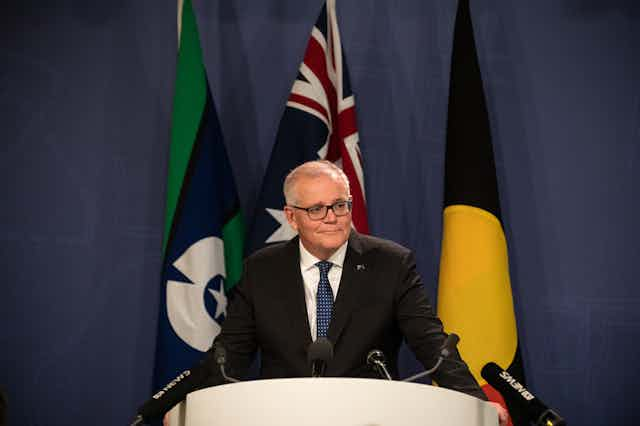The government has appointed former High Court judge Virginia Bell to inquire into former Prime Minister Scott Morrison having himself secretly appointed to five ministries.
Bell will examine the facts and circumstances of what Morrison did and the implications of his actions.
She will also report in “the practices and policies which apply to ministerial appointments”, recommending procedural or legislative changes to give greater transparency and accountability.
Announcing the inquiry’s details, Prime Minister Anthony Albanese indicated how Bell conducted it would be basically up to her.
He expected those involved would co-operate but flagged that if they did not, the government would review the situation.
“We have every confidence that people will co-operate […] If there isn’t co-operation, then there are other matters that can be considered in the future.”
Asked about Morrison’s attendance, Albanese said it would be “extraordinary” if anyone refused to talk to a former High Court judge who was beyond reproach.
Bell will report by November 25, leaving time for parliament to deal with recommendations she makes.
During 2020-21, Morrison had himself appointed to the ministries of health; finance; industry, science, energy and resources; home affairs and treasury.
He did not tell cabinet of his multiple portfolios, and none of the appointments was publicly announced.
His moving into health was agreed to by the health minister, Greg Hunt. His appointment to resources was known to the minister concerned, Keith Pitt, whom Morrison overrode on an exploration matter, and to two Nationals leaders.
The other ministerial incursions were not known to the ministers in the portfolios. Morrison has said he did not exercise any powers in the portfolios except on the resources decision.
The solicitor-general found the appointments were legal but by keeping them secret, Morrison had breached the principle of responsible government.
“It is impossible for the Parliament and the public to hold ministers accountable for the proper administration of particular departments if the identity of the Ministers who have been appointed to administer those departments is not publicised,” the opinion said.
Asked whether the remit of the inquiry would expand as far as including the role of the governor-general, Albanese said: “The governor-general has made clear that his actions were upon the advice of the government, and that’s the focus of the inquiry. If you look at the terms of reference [… ] the governor-general has a particular place under our constitutional system.”
It will be a matter for Bell whether she seeks to question the governor-general.
The public will be able to make written submission to the inquiry, but there will not be public hearings.
Under her terms of reference, Bell will report on the implications arising from the Morrison appointments for not just the functioning of departments, but for government business enterprises and statutory bodies.
She will examine the implications for the structure of the ministry, the accountability of the executive to parliament and public confidence in government.
She will also examine the practices and processes applying to the appointment of ministers under section 64 of the constitution and directions that ministers hold certain offices under section 65, including the disclosure of appointments and directions.
Bell was appointed to the High Court in 2009 and retired in 2021.

